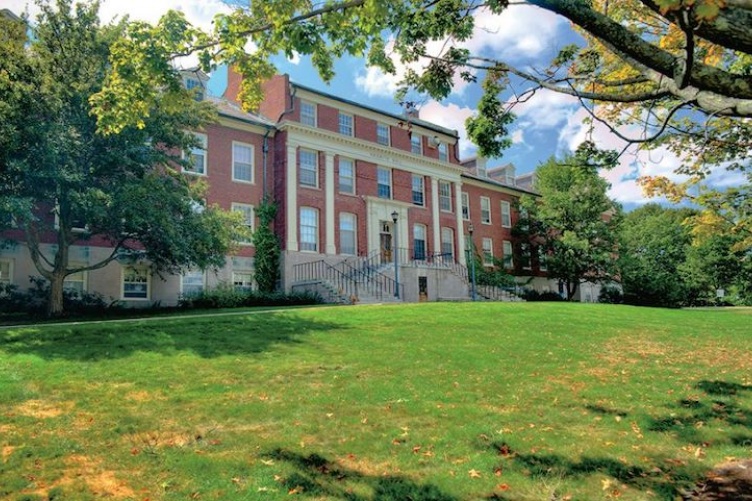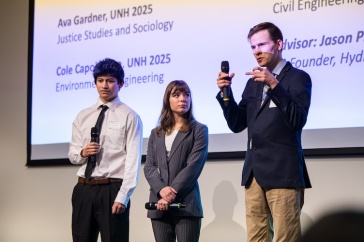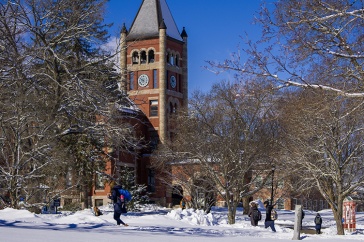
The Sustainability fellows and Social Innovation interns of UNH’s Sustainability Institute began their summer in May by connecting with each other and building their professional networks — virtually. In response to the COVID-19 pandemic, the 17 fellowships and 13 internships were modified to be completely remote. Participants and mentors saw this as a challenge — but not a barrier — to a meaningful experience and the progression of sustainable change.

“I’m not worried,” said Jacob Gehrung, a recent UNH graduate in environmental science with a minor in business administration. “The experience will be just as valuable and will help me, local communities and other states.” Gehrung’s fellowship with Solavida was a natural fit for his interests. The Vermont-based nonprofit works with the state and national groups to encourage carbon footprint reductions and develop state-level climate adaptation policies.
As an undergraduate, Gehrung completed sustainability research projects in New England, New Zealand and Ecuador. He also was president of Net Impact UNH. For his fellowship, Gehrung will create a roadmap for disclosing state spending on climate adaptation initiatives that will clarify where and how much Vermont spends on climate change adaptation. With greater transparency, more constituents can get involved and ensure initiatives are successful. The hope is this roadmap will serve as an example for other states.
Isabella Ronson, a rising senior studying business administration, is working as a social innovation intern with the New Hampshire Small Business Development Center in conjunction with the Peter T. Paul College of Business and Economics’ Business in Practice (BiP) program to create marketing materials designed to explain what the BiP offers small businesses.
“Supporting small businesses is important to creating a sustainable economy,” said Ronson. “Getting marketing services to local businesses allows them to thrive, and a thriving New Hampshire economy helps everyone. This is even more critical during COVID-19, which is putting immense strain on the small business economy.”

Ronson is no stranger to this work, having served as the head of operations for Voice Z Digital, the university’s student-run digital marketing agency serving state businesses that don't have the capability or resources to devote to vital marketing efforts. Her internship complements her passion for social responsibility and a just society for all people. Ronson is a member of UNH's Catholic Student Organization and works at the Paul College Dean’s Office. One of her biggest lessons so far has been learning to balance all the potential accomplishments of the organization’s mission with the projects she has been tasked to complete. All of that, she says, has increased her self-confidence and courage.
Both summer programs are full-time and paid, ensuring accessibility to students of all socioeconomic backgrounds. The Social Innovation internships are for undergraduates and the fellowships are for undergraduates, recent graduates and graduate students from UNH and other universities. The 30 students, matched with regional organizations to work on strategic social, economic and/or environmental sustainability projects, are supported by a mentor and received professional development training from Sustainability Institute staff.
“We’re so grateful to our partners who have stepped up to offer rich experiences for students, despite the current challenges not only to our working arrangements, but to our communities, our economy and our global priorities, said Fiona Wilson, director of the Sustainability Institute. “We know that opportunities to apply classroom learning to real challenges can be transformative in developing the next generation of changemakers, to supporting local organizations in their missions to make a positive impact, and to nurturing connections between UNH and communities throughout the region.”
The Social Innovation interns will have a public virtual showcase on July 23 from 10 a.m. – noon.
-
Written By:
Colleen Flaherty | UNH Sustainability Institute



















































